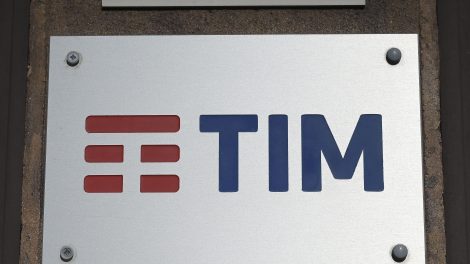The Memorandum of Understanding, long awaited, aims to unite resources, know-how and technologies under a single European industrial champion capable of competing globally. It marks what many consider the first real move towards strategic autonomy in space.
Why he matters: A long-time advocate of industrial consolidation in Europe’s aerospace and defence sectors, Giovanni Soccodato brings a strategic perspective to the implications of this new partnership — from technological sovereignty to market integration. His insights highlight what’s at stake for Europe’s competitiveness, innovation and security.
Q: The signing of the MoU between Leonardo, Thales and Airbus has been described as a historic step. What does it represent for Europe’s space industry?
A: The agreement is indeed a very significant milestone. It brings together the people, resources and expertise of Airbus Space and Thales Alenia Space, Europe’s two main space players.
- It represents long-awaited progress toward the consolidation of Europe’s aerospace and defence industry, with the aim of creating a true continental champion in a strategic domain.
- The new entity will have the scale and capabilities needed to compete globally, reflecting a shared understanding that Europe must act as one in key technological sectors.
- It’s a development that aligns industrial logic with the broader goal of strengthening Europe’s role in the global space economy.
Q: This alliance opens a new chapter. What are the next operational steps?
A: Now that industry has made a first, bold move, it’s crucial that all stakeholders — industrial and institutional — move in the same direction to ensure a rapid and effective integration.
- The swift approval by antitrust authorities will be essential, recognising the global nature of the space market and the need for Europe to compete with actors benefiting from vast domestic bases.
- Instead of fostering internal competition within small national markets, Europe should enable this new joint venture to fully express its potential.
- The objective must be to accelerate operational setup and build a unified European player capable of shaping international standards.
Q: Beyond institutions, how should markets react to this consolidation?
A: Market dynamics must evolve in parallel with industrial integration. Consolidation should foster greater convergence among European customers, especially in defence and institutional programs.
- A broader, more unified domestic market will allow the new entity to sustain advanced technological development and provide cutting-edge infrastructures and services — such as broadband communications, low-latency networks, and high-resolution Earth observation.
- These capabilities are essential not only for Europe’s security, but also for its economic and social progress.
Q: Many observers see this as a step toward Europe’s strategic autonomy in space. Do you agree?
A: Absolutely. For years, Europe has discussed the need to rely on its own industrial capabilities to meet national and continental needs.
- To achieve this, it is essential to pool resources and skills — both human and financial — and to leverage the full potential already available in Europe.
- The joint venture is a concrete move toward autonomy, provided it becomes operational swiftly and efficiently.
- This is not just an industrial project; it is a strategic investment in sovereignty, innovation, and resilience.
Q: Some critics argue that Europe is too far behind the U.S. and China. Is it too late to catch up?
A: It’s true that Europe lags in certain technologies — artificial intelligence among them — and has suffered from a fragmented supply and demand landscape. But that doesn’t mean surrender is an option.
- Europe boasts strong industrial groups and world-class research and innovation ecosystems.
- What has often been missing is a coordinated industrial direction, aligning research priorities and projects to optimise resources.
- Initiatives like this joint venture can help bridge the gap, meet significant internal demand, and secure the future of Europe’s qualified workforce, while boosting growth and technological excellence.
The bottom line: Europe’s space venture is more than an industrial agreement — it’s a test of will. If successfully implemented, it could transform Europe’s fragmented landscape into a coherent force, capable of shaping the future of global space competition on its own terms.





